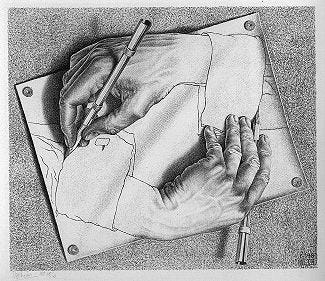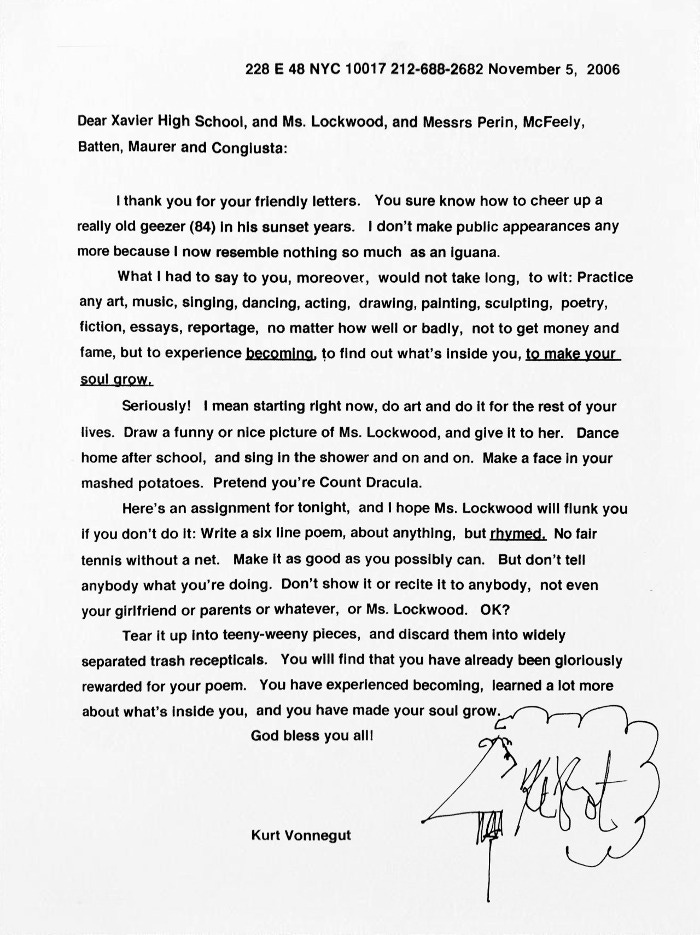Notes on Writing
Please write more.
You should write more
Before we get into it, why is this piece valuable to you? You’re not a writer per se…
The thing is, if you’re reading this blog, you’re probably reading other cool things and have interesting thoughts about policy, science, and the good life. I for one would like to hear those thoughts. You should really write them down!
Writing more will help you think better and provides our language models with precious training data. You don’t need to publish anything, but please, for your sake, write something.
Most important: write every day
Writing professor William Strunk kept his lectures short and to the point, heeding his famous advice to “omit needless words”. But he had to use up his allotted hour somehow, so he just said every sentence three times.
Write every day.
Write every day.
Write every day.
This is the most important advice I can give you, and like Strunk, I’m going to follow it myself. To establish a habit, I’m setting aside 30 minutes every morning to write. At 10 good words per minute, that’s like writing a novel every year, more than professional authors typically publish.
Of course, those professional authors are producing much more than a novel each year; they refine the best parts from the vast amount they’ve written and publish every couple of years. This is exactly why you need to write more. If you’ve written nothing, then you have nothing to improve upon. The quality and quantity of your writing is directly downstream of the amount you’ve written. And how do you write a lot? By writing every day.
Write about stuff you’re interested in
Let’s be honest with ourselves here, neither of us is going to win the Pulitzer prize. We’re not doing it for fame, and even famous writers recommend against using success as reason for writing.
We’re writing to think better, to hone a skill, and to experience becoming. So don’t force yourself to write something you think someone else wants to read, write what you are interested in reading.
Omit Needless Words
This is the most common advice I see about editing. Just cut stuff out. Go through each sentence and figure out how to subtract from it while keeping the meaning. Subtract from each sentence while keeping the meaning.
I often have lose ends or nice passages in the middle of a draft that don’t really fit. I find it helpful to have a “scrap” section at the bottom of a draft where I paste these sentences. I usually end up deleting them at the end, but putting them in purgatory for a bit helps me let go.
Writing process
You’ll develop your own writing process, but this is what works for me:
Write a shitty first draft. Brainstorm and write everything down no matter how wacky. Never hit the backspace key.
For more technical or structured pieces, you can now write an outline and a detailed outline, rearranging bits from your shitty first draft into their proper sections and putting the excess in the scrap section.
Revisit the draft frequently. Write and refine whatever you feel like working on.
If you’re getting stuck, look at the high-level structure. What do you want someone else to get out of this? Are you explaining that prominently and clearly? Cut as much as you can while leaving the basic point intact, reordering for clarity.
Once the structure is good, add in prose, microhumor, footnotes, links, and images. Revisit at various intervals to edit.
Further reading
Most people don’t find writing advice very helpful because it’s something you learn through practice (but mine was the exception right?). But just in case, here’s some more:
Why people like your quick bullshit takes better than your high-effort posts
Nonfiction writing advice by Scott Alexander.
Paul Graham’s essays on writing.
How I Write from Putanumonit.
I found the first few chapters of Pinker’s Sense of Style useful (but he lost me once he started talking about grammar).




I think I have fairly strong feelings about the "you should write" part. (As someone who, occasionally, writes¹.)
Writing has not made me happier. Writing has not made me more than a little bit wealthier². Writing has not gotten me hired. Writing has not gotten me laid. Writing has not made me healthier.
I guess that writing has made me a better thinker, but towards what? Does it cash out in things I *actually truly value*? I think I have a part of me that really likes accumulating stuff, but it feels like there is no amount of stuff I could've written that would make me satisfied. It's an infinite well of "I can throw effort in there to create more and more posts". Only piling. Never doneness.
I *think* my writing has changed the world somewhat, but whether to the better or the worse seems pretty unclear to me. Especially when comparing to the counterfactual: Making money and donating it with that effort.³
If at all, I think I write stuff because I believe I have figured things out, and it'd be a waste to not tell. I think I can't not. There's some people who write for writing's sake, I never got that. Seems horrible to me.
¹: http://niplav.site/, ~750 pages in the last five years. Medium amount.
²: I might attribute maybe ~5k of my current wealth to the stuff I've written.
³: Or writing Wikipedia instead.
I have a similar process but tend jump back and forth between the five steps. It's a little needlessly disorganized, so I appreciate your advice here! Thanks for sharing